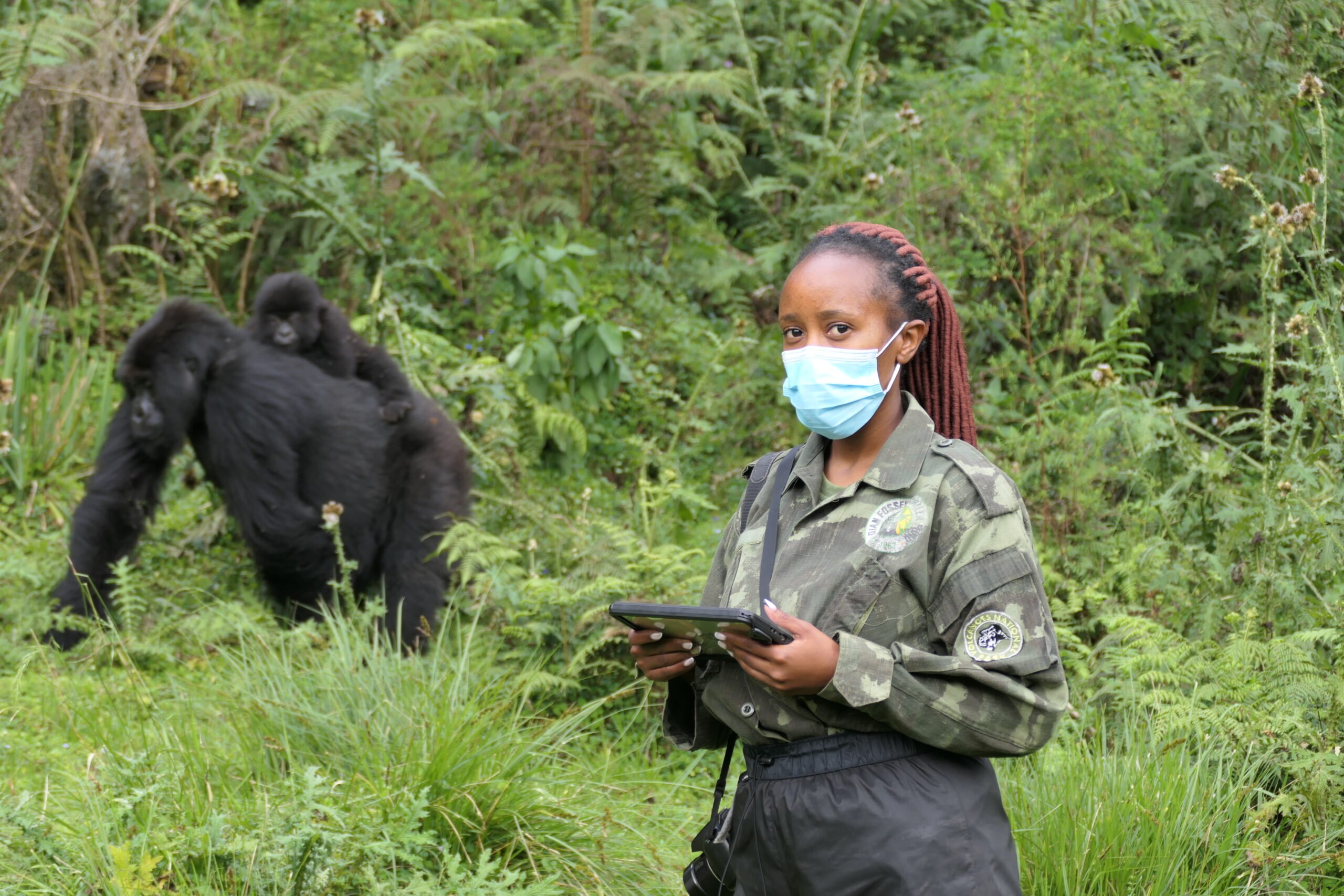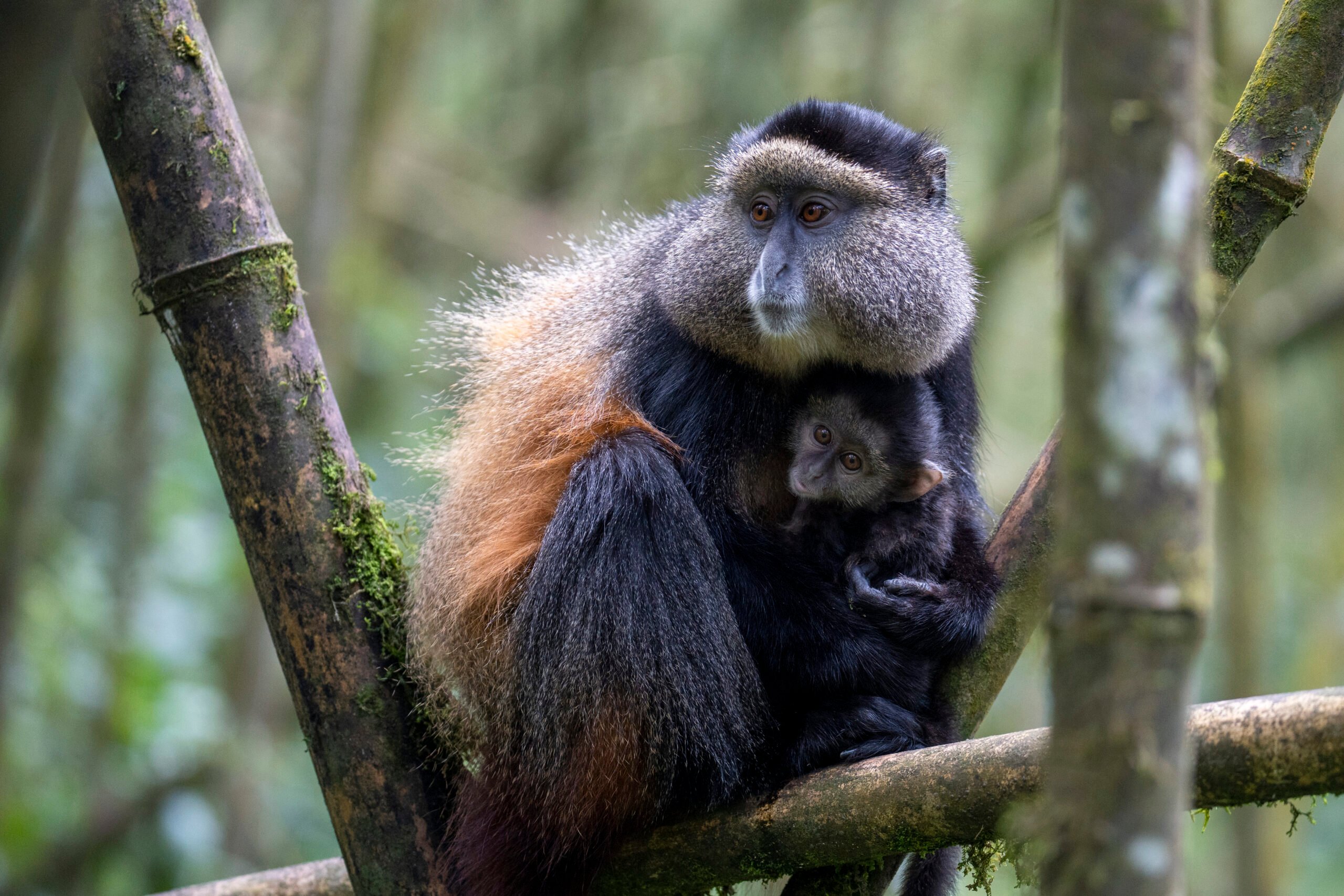In the Fossey Fund’s work with student nature clubs in schools near Rwanda’s Volcanoes National Park, we have found that growing and planting trees is one of the most popular and useful activities. The students begin by creating tree nurseries, including fruit trees, bamboo and other local trees that will help support their communities for years to come, help provide food security and reduce the need for people to cut trees from the forest. When the seedlings are ready, the trees are then distributed to community members or even planted by the students themselves.

Trees for community use
This year, with support from the Fossey Fund, the nature club at the Nyabirehe school implemented a tree nursery project aimed at producing 10,000 alder tree seedlings but were so successful they ended up with more than 15,000. The seedlings have now been distributed to people who live near the school, as well as teachers and students, for planting on their farms.

“These trees are important to us in many ways,” says Theogene Mazayose, one of the farmers who received seedlings from this project. “They produce oxygen, which we need to breathe. They also provide homes to many animals and plants, prevent erosion and help improve the soil. This is why I am going to plant them.”
Trees to rebuild forests
And some of these trees are also being directly used for reforestation. For example, the nature club at the Nyabitsinde school implemented a project in 2019 to grow trees that would be used for reforestation near Volcanoes National Park, where the gorillas live. They planted 1,600 seedlings of the native Hagenia abyssinica tree, which is an important tree native to the gorillas’ habitat and is a key to the future health of these forests

Now, after several years of growing, these students proudly donated 1,000 Hagenia seedlings from their nursery to the Singita Kwitonda Lodge, which is located near the park and has a reforestation project to plant indigenous trees around the park near the lodge. Sixty students, along with Singita staff, planted these seedlings along the road outside the lodge.
“We are very grateful and proud to contribute to the environment restoration project at Singita Lodge,” says nature club student Patrick Nshuti. “These Hagenia trees will be a home to various wild animals including birds and many other unique forest animals in the future.”






